Every Woman Matters

Breast cancer is a major public health concern for all women, including women with disabilities. Disabled women are just as likely as women without disabilities to have ever received a mammogram: however, they are significantly less likely to have been screened within the recommended guidelines (MMWR 1998, Iezzoni et al. 2000, Schootman 2003). The public health community has increased breast cancer awareness and encouraged women to adopt preventive practices through the use of health communication messages and campaigns, yet few communication messages exist that target women with disabilities.
The Centers for Disease Control and Prevention (CDC) conducted a qualitative study to explore the barriers to breast cancer screening for women with physical disabilities. Barriers identified included: lack of perceived susceptibility, preoccupation with other health issues, not knowing where to go for accessible screening, difficulty with positioning, inaccessible facilities and equipment, and provider knowledge and attitudes (Thierry 2004). Disabled women also identified the lack of health promotion messages and materials that reflect their unique needs as problematic and requested that CDC address this issue.
As a result of this study, CDC, in collaboration with its social marketing contractor, the American Institutes for Research, created and tested the Right to Know campaign. The Right To Know campaign is a family of health promotion materials (e.g., posters, MP3 files, low-tech flyers, print ads, and tip sheet) designed to increase awareness of breast cancer among women with physical disabilities and encourage these women to get screened. Research has shown that perceived susceptibility (Aiken et al. 1994, Allen et al. 1994, Stein et al. 1992) and self-efficacy (Bandura 1977, Allen et al. 1998; Palmer et al. 2005) are strongly associated with mammography screening. The materials, which feature four women with physical disabilities who have survived breast cancer, are designed to address perceived susceptibility and self-efficacy. Development and testing of these health promotion materials was completed between 2002 and 2006.
"Every Woman Matters: Portraits of Montana Women Living with Disabilities" (EWM) is a multimedia exhibit. EWM was developed by community partners in Montana to travel the state and promote awareness of the Centers for Disease Control and Prevention's Right To Know campaign. The EWM exhibit features black and white portraits (36"x 48" canvas prints) of 12 Montana women with physical disabilities – some of them breast cancer survivors, all of them role models and advocates. The portraits, taken by internationally acclaimed portrait photographer Steven Begleiter, are augmented by a multimedia video project produced by University of Montana School of Journalism students and professor Jeremy Lurgio. A grant from Susan G. Komen for the Cure's Montana Affiliate supported portrait production.
The EWM exhibit's next stop is in May 2009 in Helena, and will coincide with the Komen Montana Race for the Cure. The "Every Woman Matters" multi-media exhibit will travel to communities across the state and will be available for health conferences and other events. To install the exhibit, hosts need 800 to 1200 square feet of gallery/studio space and a LCD projector with projection screen or a large TV Screen with a DVD player.
For more information, contact Meg Ann Traci.
Portraits of Montana Women Living with Disabilities
Breast cancer is a major public health concern for all women, including women with disabilities. "Every Woman Matters: Portraits of Montana Women Living with Disabilities" (EWM) is a multimedia exhibit to promote awareness of the Centers for Disease Control and Prevention's Right To Know campaign.
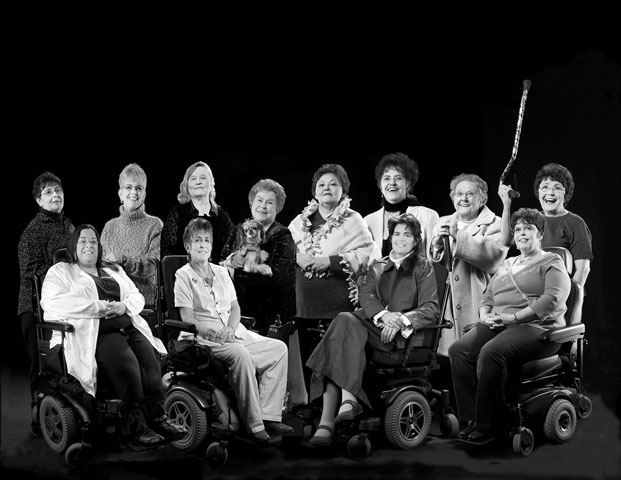
[EWM Promotional Video on YouTube]
Melodie Bowen
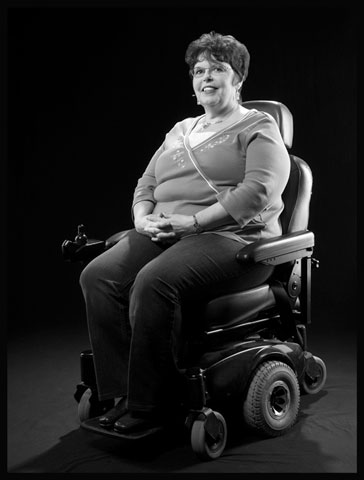
“If you think something is wrong, don’t let the doctor tell you no.”
--Melodie Bowen, Great Falls, MT
Jessica Cantrell
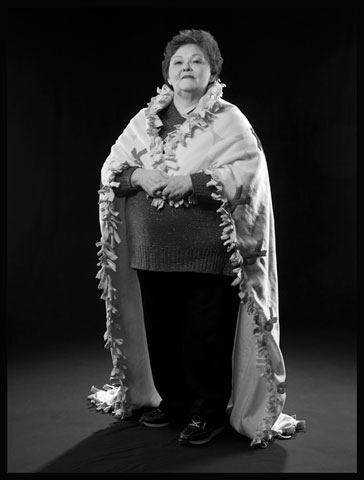
“There is another life beyond this, I don’t fear the end.”
--Jessica Cantrell, Poplar, MT
Nickie Fee
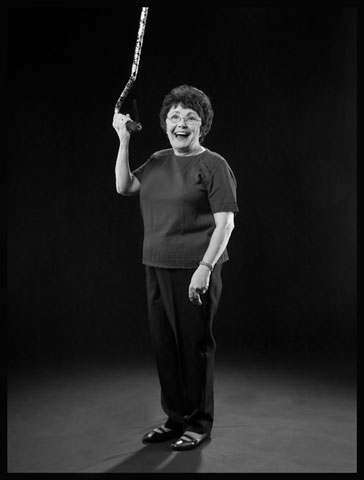
“Never give up. Go to the doctor, even though you get frustrated, go.
Never give up. As simple and as complicated as that is.”
--Nickie Fee, Great Falls, MT
Monica Garrahan
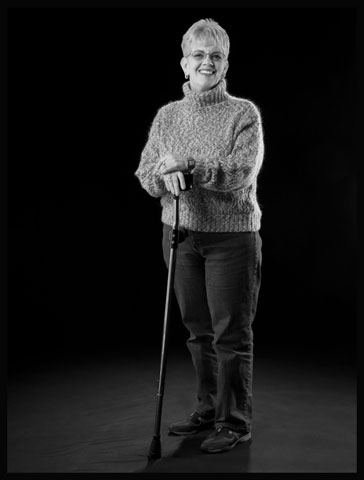
“Every woman counts, everyone is important.
Every woman has the right to get the screening they need; Every Woman Matters.”
--Monica Garrahan, Helena, MT
Barbara Harper
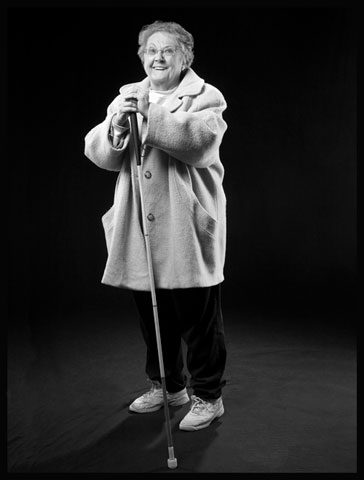
“You gotta have hope, ‘cause without hope there’s nothing.”
--Barbara Harper, Missoula, MT
Lynne-Marie Kelly

“We need to do something and we need to do it now, because
there are women out there that are not having mammograms.
This is important.”
--Lynne-Marie Kelly, Missoula, MT
Betty Kelton
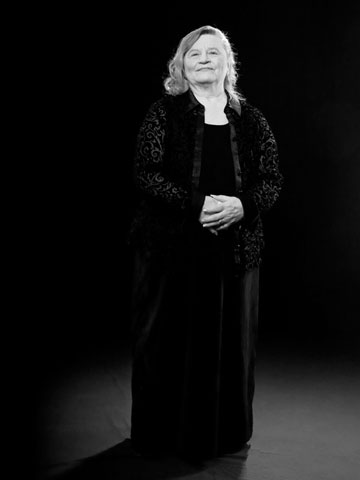
"We have no idea what our capacity is to overcome.
And that is just what we have to do, is be an ‘overcomer’.”
--Betty Kelton, Pablo, MT
Mary Leighton

“Your independence is a lot. And when you don’t have independence,
it’s like you lose a part of yourself.”
--Mary Leighton, Billings, MT
Connie Leveque
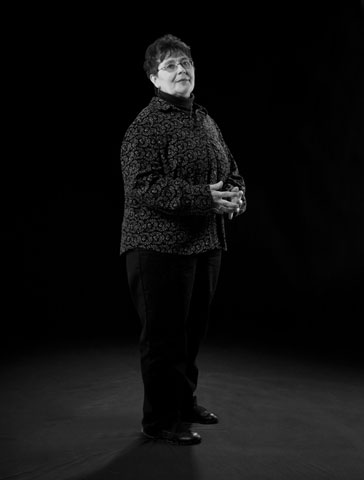
“We need to focus on being our own best friends.”
--Connie Leveque, Helena, MT
Dolly Lingle
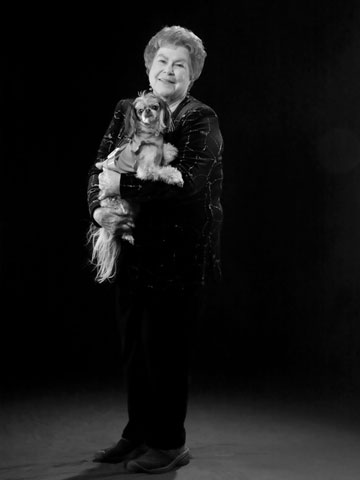
“Love IS a great healer.”
--Dolly Lingle, Polson, MT
Sylvia Stevens
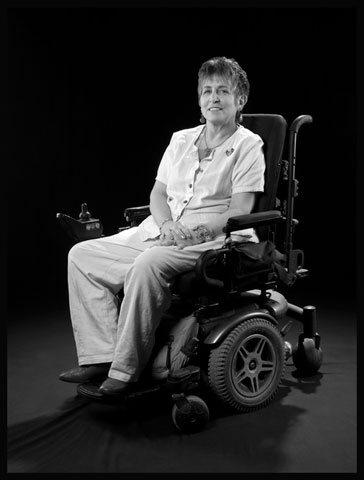
“It’s O.K. to ask for help.”
--Sylvia Stevens, Helena, MT
Carla Taylor

“I want to be strong for my daughter. I have MS, I don’t want it to own me.”
--Carla Taylor, Kalispell, MT
Credits
Videos from The University of Montana School of Journalism
Video directed and produced by UM Assistant Professor Jeremy Lurgio
Co-Produced by UM students Letty Hingtgen and Russel A. Daniels
Original music by Bethany Joyce and Madeline DeMahy
Original Web site design by Chase Doak
Still photography by Begleiter.com Photography
Additional video by Tricia Traci Productions
Produced by The Montana Disability and Health Program; a partnership between the Montana Department of Public Health and Human Services (MDPHHS) and the University of Montana Rural Institute on Disabilities.
Made possible by:
- Summit Independent Living Center
- MSU College of Nursing
- Montana Independent Living Project
- North Central Independent Living Services
- Living Independently for Today and Tomorrow
- Burton's Classic Salon
- Susan G. Komen For The Cure – Montana Affiliate
- Profoto USA
- Inkstone and Architecture
- Canvas on Demand
- Missoula Children's Theatre
Travel for spokeswomen support by a cooperative agreement between the Centers for Disease Control and Prevention and MDPHHS (U59/CCU824602)
Thank you to the twelve brave women who shared THEIR stories.
